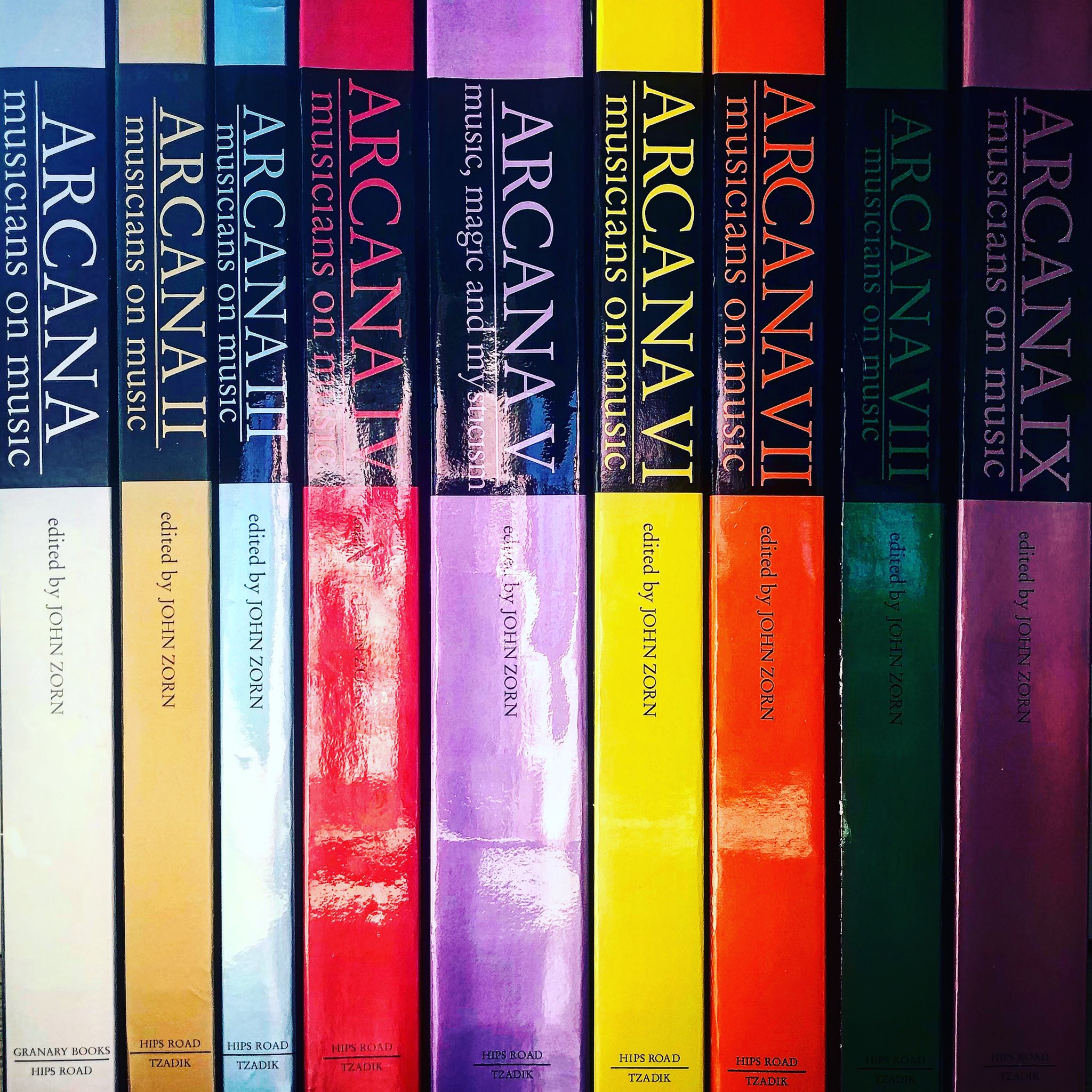Arcana: Musicians on Music

There are ten of these books — same title, volumes I – X — published at irregular intervals between 2000 and last year. I don’t own them all (about half are in my nearby library), and I don’t expect to ever be “finished” with them. I expect to dip in and out, as you might with a reference book, an archive of idiosyncratic thoughts, theories and memoirs. They deflect all attempts to impose any received order, and yet converge on the making of new music now, pointing toward its infinite possibility and narrating accounts of how specific sound worlds came to be. Initiated and edited by the prolific, versatile and charismatic John Zorn, Arcana was intended say something about the history and theory of music that was not being said in journals or taught in schools. As Zorn wrote in the first volume of the series,
…after more than twenty years of music-making on the New York scene, except for the occasional review in trade magazines/periodicals (which because of the context in which they appears and the speed with which they are written don’t really count anyway) not one single writer has ever come forward to champion or even to intelligently analyse exactly what it is that we have been going. Indeed, they hardly seem able to describe it…this book is at least a first step, filling a very real gap.
Zorn’s method was very simple: he asked the musicians he knew, whose music he admired, to write about their work and send him the results. Musicians clearly vary a great deal in their relationships to writing: some refuse to do it. A few are awkward. But a very high proportion of authors featured in these volumes have produced graceful and engaging, as well as innovative texts. Perhaps we should not be surprised. There is, after all, quite a lot of common ground: there’s a rhythm and pitch about language; transposing an idea about sound to a surface challenges the imagination; readers have more than a little in common with an audience of listeners in their hope of sense something of their own realities in invented worlds.
I came across this book soon after having begun a project of my own called Learning to Listen. Following a list compiled by an English music journalist, Tom Service, a specialist in contemporary classical music, I set out to listen and learn about the work of one composer each week for 50 weeks. Zorn was about fourth or fifth on the list. He changed the whole project. In some ways a turn from the intended path, it felt more like lift-off, from a surface route to free-form path in multiple dimensions. His work, along with my discovery of Arcana, undercut my image of “studying” music in an orderly or thorough or even unidirectional way; it was an introduction to something like creative listening, listening as time spent travelling into, through and across sound worlds, discovering one’s own unique values, musical memory, allergies and attractions.
Most of the essays published here are short memoirs — personal experiences, tales of exploration, discovery, transformation; quite a few involve encounters with Zorn himself, as composer, mentor, performer, improvisor, critic or publisher or inspiration. One that particularly interested me, bound up in language as I am, was David Rosenbloom’s “Propositional Music” [title shortened — Volume I, pp 203-232], which seems to me to address exactly the problem Zorn points out initially, namely that critics seem unable to even describe what these musicians are doing. Rosenbloom does describe it. In doing so, he sheds light on the reason it’s really difficult. For it is no longer enough to plug new information into old historical models. This project requires a rethinking of inheritance, diversity, expansion, innovation, something like a genetic model for the evolution of music.
The last two volumes in the series were published last year, and Zorn has declared the project finished. He has successfully called attention to the issues, and made a strong start addressing them. Even apart from their value as support and validation of musical composition and performance, the books deserve a wide readership, for they offer a wealth of insights into creativity, whether specifically musical or not.


